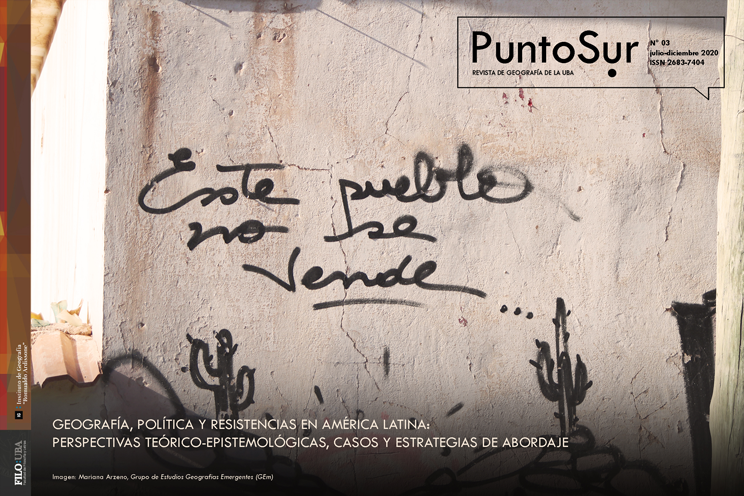Social movements and institutionalization: the specificity of socioterritorial movements
Keywords:
socioterritorial movements, institutions, citizenship, neighborhood organization, Tupac Amaru
Abstract
The main objective of this paper is to analyze the processes of institutionalization carried out by specific social movements: social movements that appropriate a space for the development of their political projects, defined as socioterritorial movements. Reviewing the debate around the risks and possibilities offered by institutionalization to the processes of mobilization, politicization and social transformation carried out by social movements supposes, in the case of socioterritorial movements, the analysis of their territories. Because those territories are from which they develop their strategy, constitute their identity and political sociability and, also, their institutions. Hence, we propose a spatial approach to rethink the idea of institutions and citizenship, from the analysis, under a qualitative strategy, of the territorialized institutions of a case of urban socioterritorial movement, the Tupac Amaru Neighborhood Organization in Jujuy, Argentina.Downloads
Download data is not yet available.
Published
2020-11-30
How to Cite
Torres, F. (2020). Social movements and institutionalization: the specificity of socioterritorial movements. Punto Sur, (3), 109-130. https://doi.org/10.34096/ps.n3.9700
Section
Dossier






















